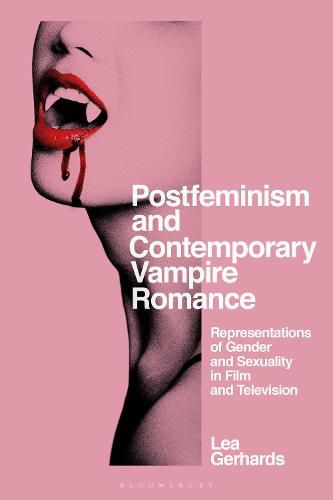Readings Newsletter
Become a Readings Member to make your shopping experience even easier.
Sign in or sign up for free!
You’re not far away from qualifying for FREE standard shipping within Australia
You’ve qualified for FREE standard shipping within Australia
The cart is loading…






In this book, Lea Gerhards traces connections between three recent vampire romance series; the Twilight film series (2008-2012), The Vampire Diaries (2009-2017) and True Blood (2008-2014), exploring their tremendous discursive and ideological power in order to understand the cultural politics of these extremely popular texts.
She uses contemporary vampire romance to examine postfeminist ideologies and discuss gender, sexuality, subjectivity, agency and the body. Discussing a range of conflicting meanings contained in the narratives, Gerhards critically looks genre’s engagement with everyday sexism and violence against women, power relations in heterosexual relationships, sexual autonomy and pleasure, (self-) empowerment, and (self-) surveillance. She asks: Why are these genre texts so popular right now, what specific desires, issues and fears are addressed and negotiated by them, and what kinds of pleasures do they offer?
$9.00 standard shipping within Australia
FREE standard shipping within Australia for orders over $100.00
Express & International shipping calculated at checkout
In this book, Lea Gerhards traces connections between three recent vampire romance series; the Twilight film series (2008-2012), The Vampire Diaries (2009-2017) and True Blood (2008-2014), exploring their tremendous discursive and ideological power in order to understand the cultural politics of these extremely popular texts.
She uses contemporary vampire romance to examine postfeminist ideologies and discuss gender, sexuality, subjectivity, agency and the body. Discussing a range of conflicting meanings contained in the narratives, Gerhards critically looks genre’s engagement with everyday sexism and violence against women, power relations in heterosexual relationships, sexual autonomy and pleasure, (self-) empowerment, and (self-) surveillance. She asks: Why are these genre texts so popular right now, what specific desires, issues and fears are addressed and negotiated by them, and what kinds of pleasures do they offer?